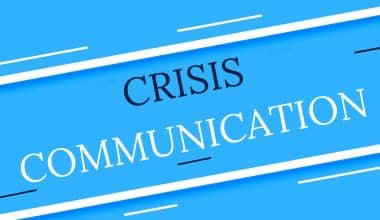Your desire to grow your company overseas may be on your bucket list, but if you don’t do your research, your dream could be crushed. This is where international PEOs can help. Although some individuals mistake these third-party HR companies for another kind of useful worldwide business, they are known to make trustworthy partners for expanding into new regions. In this article, we will be looking into the meaning of PEO, te best for small companies, and downsides of using them in your business.
Peo Meaning
PEOs, or professional employer organizations, are used in full-service human resource outsourcing’s co-employment paradigm. Under this arrangement, the PEO administers the company’s payroll, benefits, and other employee-related responsibilities. Some PEOs also provide strategic services, but because no two are the same, it’s important to research and evaluates various service providers.
Why Use a PEO?
The expert, strategic guidance of a PEO may enable you to grow your business while feeling more at ease. PEOs frequently provide assistance with
#1. Preparing Tax and Payroll Returns
Federal, state, and local employment taxes are occasionally paid through payroll processing organizations (PEOs). Many also combine time and attendance tracking with payroll, which reduces data entry mistakes and duplication.
#2. Benefits Administration
Co-employment agreements frequently provide access to retirement benefits, high-quality dental coverage, and other employee advantages. The PEO often takes care of processing your claims and enrolling employees in these benefits.
#3. Compliance
Compliance experts are typically employed by PEOs, and they could help defend your business from fines and penalties. They might be knowledgeable about the rules pertaining to hiring procedures, workers’ compensation, unemployment insurance, and payroll tax reporting and compliance.
#4. Risk and Security
In addition to workers’ compensation insurance, PEOs occasionally offer training initiatives and safety audits to help you reduce claims. They could also support OSHA (Occupational Safety and Health Administration) inspections.
#5. Aid with Human Resources
HR professionals who work for a PEO often offer HR support and services. The PEO works in tandem with whatever internal HR employees you may already have, both strategically and practically.
Best Peo Companies
By handling crucial administrative chores, a professional employer organization (PEO) aids businesses in expanding more quickly and with less resistance. All of your needs for HR, payroll, recruiting, compliance, risk management, and other things can be met by PEO service companies. Below are some of the best PEO companies.
#1. Resourcing Edge
Payroll, employee benefits, HR, and risk management are just a few of the areas where Resourcing Edge may help your business with its human capital management requirements. They do the time-consuming duties so you can concentrate on expanding your company. Resourcing Edge creates unique solutions for each customer and provides a range of PEO companies. By providing you with a single point of contact and a reliable web-based platform that enables you accessibility from your computer, tablet, or smartphone around the clock, they also make it easy for you to maintain your program.
#2. Amplify PEO
You need the plan to keep organized from hiring to retiring. It’s handled on your behalf by Amplify. Information on the employees is preserved with the paperwork. Amplify provides all administrative assistance you may require. They have a professional on staff that can assist with everything from complex compliance problems to GL mapping. Additionally, it is easy to see the bigger picture if your business is set up on Amplify. Amplify will provide you with expert advice to assist you in making decisions about how to raise revenue, cut costs, and provide your staff with even greater benefits.
#3. ADP TotalSource
For owners of small to medium-sized businesses, this is a fantastic answer. ADP has a package for you whether you have 1 to 49 employees, 50 to 999 employees, or 1,000+ team members. Use ADP TotalSource for managing human resources, talent, payroll, employee benefits, and risk. You may utilize ADP as a small business owner to give your staff first-rate health, dental, and vision insurance. ADP additionally provides 401(k) plans. The utilization of technology by this PEO supplier is its main advantage. A mobile app or user-friendly web interface can be used to access and manage anything from HR to payroll, benefits, and recruiting.
#4. PapayaGlobal
You may easily test out new markets thanks to PapayaGlobal’s straightforward setup of contractors or FTEs anywhere. The international PEO handles all the problems related to compliance. Your company may concentrate on its objectives while PapayaGlobal takes care of the local currency, funding requirements, and special circumstances of conducting business abroad.
You have access to a simple dashboard where you can keep tabs on your staff, peruse payroll information, or investigate workforce metrics. Maintain all of your HR objectives even while your business grows globally. Your staff can use a cutting-edge self-service website where they can discover the facts they require and discover solutions to many of their own queries.
#5. Paychex
Paychex offers a wide range of PEO companies in addition to its well-known online payroll services. The manner in which Paychex offers PEO services is one of its most notable traits. Every company that partners with Paychex receives a dedicated HR professional. You will speak with someone who is familiar with your situation when you call for assistance. Even infrequently, this committed HR manager might drop by your workplace.
Best Peo Companies for Small Business
Professional employer groups can provide small and midsize companies without internal human resources staff with a human resources solution (PEO). Instead of hiring internal HR professionals, a PEO manages your payroll, employee benefits, and other HR-related responsibilities. When selecting a PEO for your business, there are many different factors and services to consider. To speed up the process, we have chosen some PEO companies, that, in our opinion, are best suited for various use cases and small business types.
#1. TriNet
TriNet provides industry-specific service plans so that your business can receive specialized care based on the markets you serve. TriNet’s PEO companies solution comes with HR services, document management, risk management, payroll processing, and benefits administration for some small business. Businesses with regulatory and safety obligations can fulfill them by using TriNet’s sector-specific expertise as a resource for compliance.
#2. Paychex
Paychex is the ideal PEO for small business companies with at least five local employees. The fact that this service is available in all 50 states and offers customized plans with variable pricing benefits both small and growing businesses. The platform is completely scalable and can grow with your company. The ability to add and remove services might be quite beneficial for small businesses with erratic workforce development. Paychex customers receive support with risk management, payroll, HR administration, and employee benefits.
#3. Rippling
In the era of the remote workforce, small business companies desire a PEO that can handle an expanding amount of activities. Decentralized enterprises with workers dispersed throughout numerous states may find this challenging. Some PEOs only have licenses in certain states, while others only provide administrative assistance to businesses that have all of their employees in one location. Unlike Rippling, which can help businesses in many different countries and provides capabilities like remote laptop administration and local tax registration. The user interface of the Rippling software is straightforward, making it easy to use and comprehend.
#4. Justworks
Small and medium businesses can access corporate benefits, automated payroll services, compliance tools, and HR solutions through Justworks’ user-friendly portal. Customers have access to affordably priced medical, dental, and vision insurance as well as employee retirement programs. Customers can reach knowledgeable customer service representatives 24/7 through phone, email, chat, Slack, or SMS. You will have access to HR experts who can assist you and provide you guidance on what your employer wants of you. Justworks is also one of the best PEO companies for small business.
#5. Insperity
Small business companies with at least five employees benefit from Insperity’s range of PEO service alternatives and tailored coverage choices. Businesses that partner with Insperity have access to more than 5,000 training resources, payroll processing, benefits management, HR solutions, and risk management services. It provides a variety of services for workers’ compensation, regulatory compliance, and labor optimization. It can also help you analyze and restructure a variety of business practices to boost productivity at your organization and reduce compliance worries.
What Are the Downsides of Using a Peo?
According to reports, managing HR across an organization has become more complicated and expensive due to the surge in global business expansion. Investors and entrepreneurs are constantly looking for new approaches to entering the market. Globally, the PEO, or professional employer organization, has become more well-liked in this field. Less consideration has been given to the downsides of PEO services than to their benefits as part of global PEO solutions. Below are some of the downsides of using PEO:
#1. PEOs Hire Temporary Workers as Employees.
Some people believe that professional employer organizations’ staffing-related solutions are the only ones available and that the employees they hire are not full-time or long-term employees. This is is one of the downsides of using PEO. Global PEOs have the capacity to establish various employment relationships with individuals and turn into their legal employers in your target nation. A worldwide PEO can employ people on permanent contracts, temporary contracts, fixed-term contracts, full-time contracts, part-time contracts, and casual contracts, as long as different types of employment are lawfully permitted in-country.
#2. PEOs are Now in Charge of Hiring and Terminating Personnel.
According to allegations, a PEO is free to hire and fire workers anytime it wants, going against the wishes of the client company. Only decisions about hiring may be made with their cooperation, according to the terms of the engagement agreement between the client business and the global PEO. Prior to moving forward, the global PEO will confirm that the hiring or firing complies with all relevant local laws (many nations forbid “at will” termination of employees).
The top employees will be chosen by international PEOs that provide a recruitment service for businesses in other nations. The client company shall, though, always have the last word in these matters which shows a downsides of using PEO by companies.
#3. Employees Don’t Frequently Accept PEOs
It is a given that employees will be reluctant to sign employment contracts with a PEO. It is a given that the worker would choose to sign a contract with the actual client to whose benefit they actually render services. Nevertheless, this is frequently the case. PEOs are specialists in compliance and payroll, so employees can be confident they will receive their benefits on schedule. Additionally, they are confident that the PEO and its dedicated support staff will swiftly repair any errors rather than using “laggy” internal payment and error-correction methods. This really shows the downsides of using PEO.
#4. Only Major Corporations Should Employ PEOs.
Other downsides of using PEO is that, large firms that want to focus more on their core capabilities occasionally explore PEO as an outsourcing option. Large businesses can save money and allow their HR employees more time to concentrate on crucial HR tasks by using Professional Employer Organization services.
Actually, PEO solutions can benefit many types of enterprises, including start-ups, small- to medium-sized firms, and large corporations. Non-specialists must spend time and money to comply with employment legislation, payroll, and income tax regulations. Small companies who attempt to handle this internally frequently discover that it takes longer than they had anticipated.
#5. PEOs Obtain Control of Your Business
If you use a PEO solution, you must choose a third party as the employer of your business showing downsides of using PEO. Some would interpret this as an allocation of business management. However, this is incorrect. Employer of Record services provided by foreign PEOs just transfer specific administrative and compliance responsibilities to the foreign PEO: the foreign PEO is responsible for hiring personnel under valid employment contracts, processing payroll, and paying any necessary taxes. But the PEO only completes these activities in accordance with the terms of the employment agreement with the client business.
#6. PEOs are Expensive
The primary disadvantage of professional employer organizations is their high payroll and employment expenditures. However, this is incorrect. Your HR and growth costs can be reduced by up to 90% with the help of international PEO services, which focus on international payments and economies of scale. Higher long-term expenditures are often the result of internal payroll management for all of a company’s overseas locations and legal hiring practices.
What is the Difference Between a PEO and a Staffing Company?
Both staffing agencies and PEOs are concentrated on workforce HR activities, however, when using a staffing agency, your hiring process and the associated tasks are outsourced. When using a PEO, you handle all of the administrative, payroll, and compliance duties related to your employees in-house.
How Does a PEO Make Money?
Paying you for these services is how a PEO generates revenue. While some businesses may charge a percentage of the entire gross payroll, many businesses charge per employee. Consequently, if they charge $125 per employee every month and your team consists of 25, you will be required to pay $3,125 per month, or $37,500 annually.
Is a PEO Good for Employees?
Professional employer organizations (PEOs) enable small to mid-sized enterprises to streamline many administrative HR processes, including payroll, benefits, compliance, and workers’ compensation, and give their employees access to better, more affordable benefits.
How Successful is PEO?
Your firm will develop 7-9% faster, employee turnover will be 10-14% lower, and you’re 50% less likely to go out of business, according to amazing statistics for businesses who engage with a PEO.
When Should I Move Away From PEO?
It may be ideal for businesses using a non-certified PEO to wait until the new year for a less stressful changeover, particularly when it comes to tax obligations. Taxes paid for employees throughout the year do not transfer if a business closes in the middle of the year, which results in the start of new tax accumulations.
What Percentage of Payroll Does a PEO Charge?
Be sure to seek bids for comparable services. PEO rates might vary, but they normally charge based on the number of employees you have and the services you use. According to industry analysts, the average PEO expense is between 2 and 12% of salary.
Related Article
- SHORT-TERM LOANS FOR YOUR BUSINESS: A Good Idea?
- 17 BEST SMALL BUSINESS PAYROLL SYSTEMS 2023, Updated!!!
- HR SERVICES FOR SMALL BUSINESSES: Functions & Examples of HR Services
- BEST PAYROLL SOFTWARE FOR SMALL BUSINESS 2023
- PAYROLL COMPANIES: Top 19+ Best Picks for Small Businesses, Updated!!!






